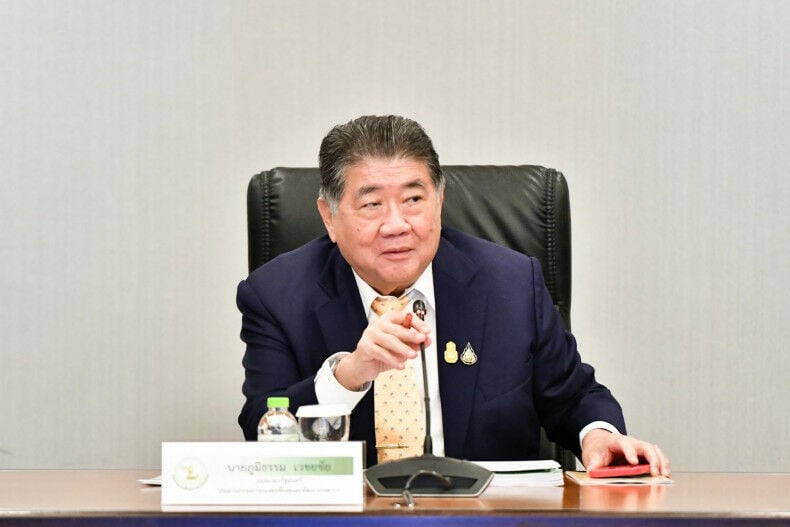Thailand denies Koh Kut territorial loss to Cambodia amid MoU dispute

Thailand Defence Minister Phumtham Wechayachai firmly denied any governmental action regarding Koh Kut in Trat province amid growing concerns about losing territory to Cambodia. The statement came in response to the Palang Pracharath Party’s (PPRP) objections to the 2001 memorandum of understanding (MoU) with Cambodia. This MoU pertains to joint marine resource development in the Gulf of Thailand—a move the PPRP fears could jeopardise Thai sovereignty.
Phumtham, who also serves as the deputy prime minister, dismissed the claims, questioning why the issue had arisen at this time. He reassured the public that the Pheu Thai-led government was committed to safeguarding the nation’s territory and sovereignty.
Koh Kut became a focal point when key PPRP figures expressed opposition to any potential agreements under the 2001 MoU framework, fearing it could lead to territorial concessions. They announced plans to submit an open letter to Prime Minister Paetongtarn Shinawatra, urging her to cease any related discussions.
The controversy is rooted in the original signing of the MoU, which occurred during the tenure of then-Prime Minister Thaksin Shinawatra, Paetongtarn’s father.
Thirachai Phuvanatnaranubala, a former finance minister and the PPRP’s academic committee chairman, pointed out that the MoU acknowledged a shared development area in the Gulf of Thailand. He argued that the attached maps seemingly validated Cambodia’s 1972 territorial claim to half of Koh Kut, contradicting the 1907 French-Siamese treaty.
According to Thirachai, the French-Siamese treaty clearly outlined that Dan Sai and Trat, including Koh Kut, were ceded to Siam. He asserted that the MoU defied this treaty, rendering it illegal.
“I have no problem with the government’s intention to discuss joint investment with Cambodia. But I will object if the government uses the 2001 MoU as a framework for the discussions because not only is it illegal. It also results in a territorial loss for Thailand.”
Koh Kut
ML Kornkasiwat Kasemsri, a PPRP executive member, contextualised the dispute by highlighting past maritime boundary discussions between Thailand and Cambodia dating back to 1970. At that time, Thailand adhered to the 1958 Geneva Convention on the Law of the Sea, whereas Cambodia set its territorial waters in 1972 without reference to international law. In response, Thailand issued a royal command in 1973 to declare its continental shelf boundary in the Gulf.
Reflecting on these historical tensions, ML Kornkasiwat noted that the territorial claims disrupted demarcation talks. However, the Thaksin administration revisited discussions in April 2001, leading to the controversial MoU’s signing on June 4 of that year.
ML Kornkasiwat highlighted the complexities introduced by the MoU, which he said resulted in an overlapping claim area of 26,000 square kilometres without legal recognition, reported Bangkok Post.
“The PPRP urges the prime minister to revoke the 2001 MoU as soon as possible because a Cambodian map attached to the 2001 MoU included the sea off Trat, Koh Kut and some Thai territory. Thailand is at a disadvantage and risks territorial loss.”
He further differentiated the issue from other overlapping claim areas (OCA) involving Malaysia and Vietnam, which align with the Geneva Convention. ML Kornkasiwat argued that before the MoU’s signing in 2001, the government should have insisted on border demarcation according to international law.
Latest Thailand News
Follow The Thaiger on Google News:


























